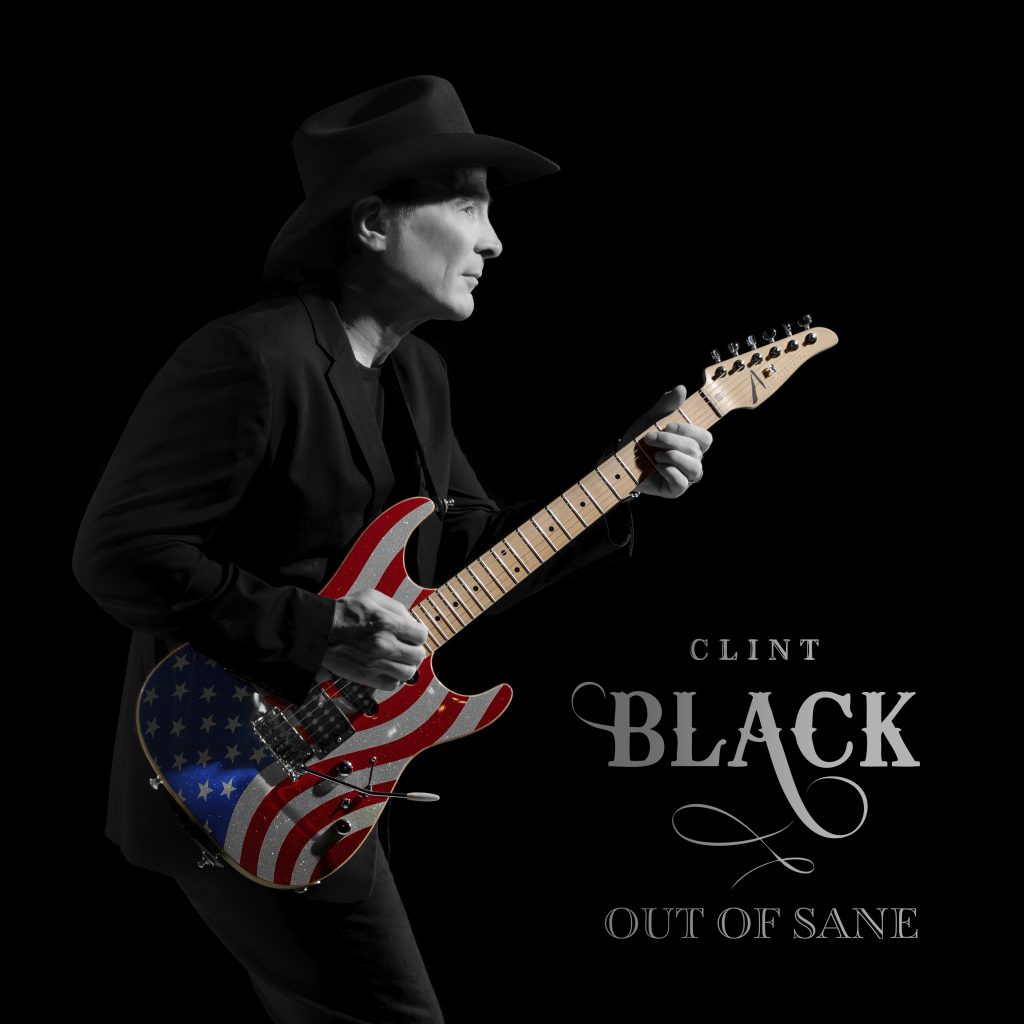Album Review: Clint Black’s ‘Out Of Sane’
This is an unmistakable Clint Black record.

The praise that’s been heaped upon young guns such as Luke Combs, Jon Pardi and Cody Johnson in recent years for helping to revive the sounds of ‘90s country is certainly warranted. We’re not looking to take anything away from them. But we’d be fantastically remiss for not giving a great deal of love to the greats who actually shaped that pre-millennial sound and are still out there making music–and making it rather well.
For his 23rd studio album, and first in five years, Clint Black has drawn from the deep well he originally built his legend upon. Out of Sane, which the Texas native produced and co-wrote all but one track on, is a straight-forward, honest effort from beginning to end. In some cases, that means its refreshingly simple, lacking any pretense, but at other times, the earnestness can be a tad overpowering.

It would be understandable for a veteran such as Black, whose commercial chart-topping days are behind him, to try and update his product into something today’s radio programmers might be compelled to put onto their playlists. Thankfully Black is secure enough in his own talent, fanbase and legacy to avoid such an artistic identity crisis.
The album-opening “Hellbent” is an electrified, crawling rock-inflected number that, thanks to Black’s low southern drawl, carries enough country weight for things to feel decidedly twangy. Similar to Garth Brooks’ most rocking songs (think “Rodeo”), it doesn’t seem as though Black could crank the amps loud enough for things to ever be anything but honky-tonk ready.
Another tune where the tempo meanders while Black’s deeper vocals take center stage is the ominous, almost menacing “Down To It.” It’s a love song, and its plenty country, but the dark, almost stalker-like sonic vibe suggests the recipient of the narrator’s affections isn’t in the biggest hurry to reciprocate.
It’s not all swirling electric guitars though, of course. Black lightens things up impressively with the sorts of fiddle-packed tunes you rarely hear on mainstream country radio now but were plentiful three decades ago. The swinging “My Best Thinking” and the harmonica-drenched “Found It Anyway” feature stomping rhythms and an undeniable fool-good spirit.
If you can listen to the bouncy “Can’t Quit Thinkin’ and not immediately envision a packed dance floor of line-dancing starched Wranglers, then go search “Wildhorse Saloon” on YouTube. And the sunshine pokes through with the bluegrass-powered “With Love” and the soulful, laid-back “Beautiful Day.”
Black does step away from his most comfortable of ranges on this record with mixed results. In the piano ballad love letter to his country, “America (Still in Love With You),” Black seems to be shooting for Lee Greenwood-size patriotic bombast by singing from a schmaltzy Hallmark card. And in the album-closing “What I Knew Then,” he employs an odd voice modulation in the chorus that robs the rocking song of any momentum, making it sound like some wacky ‘80s action figure commercial.
Make no mistake, not all the surprises here take a wrong turn. The bluesy “Find Myself” is a moody gem, and the up-tempo “The Only One” is a searing Tom Petty-esque rocker. The biggest, most pleasant surprise of all is that the one song out of the dozen on the record Black didn’t write is the one he shines brightest on.
Black’s cover of Harry Nilsson’s 1968 hit “Everybody’s Talkin’” is a fully plugged-in roadhouse rager. With tons of wall-rattling reverb backing him, Black absolutely nails that iconic high vocal note towards the song’s end. As much as any other song here, there’s little doubt this would’ve been yet another Number One single for Black had it been released during the Clinton Administration.
The signature marks Black has come to be best known for, like stellar guitar work, boldly clear baritone vocals and straight-forward country storytelling, are quite present and accounted for. In the midst of some questionable left turns and exciting surprises, such dependable constants are comforting and completely welcome. Through it all, Out of Sane, is a fine record, and most importantly, it’s a genuinely unmistakable Clint Black record.


